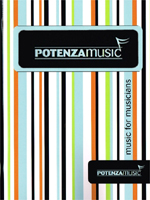Boots, Cornelius Dream of Wheat
Woodwind Duos

-
Boots, Cornelius
Dream of Wheat [flute, clarinet/bass clarinet]
21st Century (2014). This piece originated as a loose collaboration between a composer and a poet. Crescent Duo (Joanna Cowan White and Kennen White) are active and interested in both realms, and are always seeking new and exciting pieces for their duo, so this was their concept. My advantage as the composer in this assignment was two-fold: I play the instruments that the piece was to be written for and the poet-collaborator (Jeffrey Bean) had also spent time as a composer and instrumentalist, so his poetry is always echoing thoughts and feelings from the music realm.It was not the musical inspirations that caught my attention in Bean's verse, however; it was the voice and words he used when describing nature, growing things and the sense of place felt in the seasons of the American Midwest, a region in which we had both spent formative years. Specifically, the 18 short stanzas (micro-chapters, actually) of Encyclopedia of the Wheat captured my imagination. I liked the fact that these 1 to 7 line stanzas were individually numbered and presented such a diversity of moods and feelingsall revolving around the myths, psyche and experience of The Wheat.
The common thread of the parts of the poem that resonated the most seemed to be a sense of reverence and mystery for the depth and aliveness of this vast, botanical entity called "wheat." A poem and some movements of music dedicated to its influence and importance on humanity is like a micro-celebration of the reality of it. It is precisely this awe and reverence for the living system that we inhabitthat we emerged fromthat must, desperately now, be regained. -the composer
-
- Category: Woodwind Duos
- Item: 132195
- Grade/Level:
- Price: $18.95
-
(usually ships in 24 hours)
